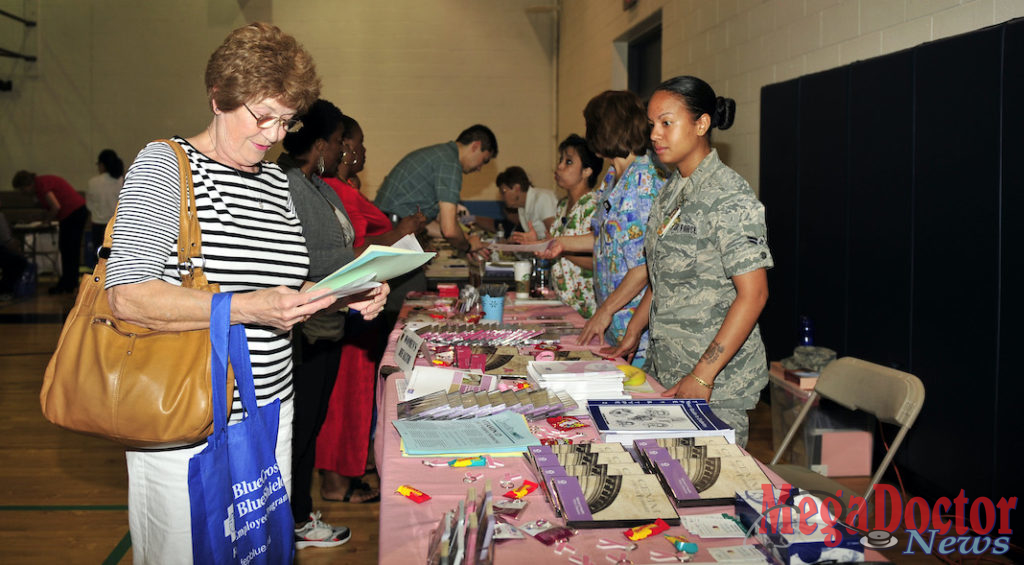
Mega Doctor News
HARLINGEN – While February may most commonly be known as heart health month, Valley Baptist Health System and the Stroke Research & Education Foundation are encouraging the community to learn more about another serious and life-threatening condition during the second-annual stroke awareness festival.
The free festival, which will feature games, prizes, family activities, live music, and dancing, in addition to valuable information on the signs, symptoms, and risk factors of stroke, is scheduled for Saturday, February 15 from 10 a.m. – 3 p.m. at Victor Park in Harlingen.
Dr. Ameer E. Hassan, DO, FAHA, FSVIN, Head of the Neuroscience Department, Director of Endovascular Surgical Neuroradiology and Director of Clinical Neuroscience Research at Valley Baptist Medical Center-Harlingen, said that education is key to preventing stroke in addition to positive treatment outcomes.
“We’re really encouraging more of the public attend the function in order to learn more about stroke, because as we have seen over the last seven-and-a-half years, every time we do this type of public educational event and collaborate with other organizations in the Rio Grande Valley, there is a significant increase in patients coming in during the golden hour and within the treatment time windows,” he said. “By getting treated earlier, patients will do much better and typically go on to have functional independence with good clinical outcomes.”
Stroke is a type of cardiovascular disease which affects the arteries leading to the brain and the arteries within the brain. A stroke occurs when a blood vessel that carries oxygen and nutrients to the brain is either blocked by a clot or bursts. When that happens, part of the brain cannot get the blood and oxygen it needs, and that part of the brain starts to die.
Without the timely treatment mentioned by Dr. Hassan, stroke can cause long-term disability and death. According to the American Stroke Association, stroke is the fifth leading cause of death and a leading cause of disability in the United States.
“One of the biggest problems is that patients typically come in too late because they feel that they’ll just get better by themselves, or they go to sleep and come in the next day,” he said. “By then it’s too late to get treatment, so we’ve really been pressing for improved education on stroke signs and symptoms and getting patients to come to the hospital sooner because it directly correlates to good outcomes.”
At Valley Baptist Medical Center in Harlingen and Brownsville, a clot-busting medication called tPA is used when medically indicated to reverse strokes – but in most cases the medication must be given within three hours from the start of symptoms of a possible stroke.
Valley Baptist-Harlingen, the first and most experienced Certified Comprehensive Stroke Center in the Valley and south of San Antonio, also offers endovascular stroke treatments, during which blood clots are extracted by specially-trained endovascular neurologists using tiny mechanical devices which are inserted into the blood vessels through thin catheters or tubes.
Valley Baptist-Harlingen is also the only hospital in the region to harness the power of artificial intelligence to analyze the imaging results of stroke patients. The AI alerts physicians and healthcare providers when it discovers abnormalities in the images of the patient’s brain, which in turn significantly improves treatment times through earlier diagnosis, Hassan said.
While health and medical information can often be confusing to the layperson, Dr. Hassan said the best ways to reduce a person’s risk factors for suffering a stroke are quite simple.
“Diet modification and eating healthier are so important,” he said. “Increase the amount of fruits and vegetables in your diet and reduce the amount of red meat. All of these would significantly decrease our cardiovascular risks as well as decrease hypertension and diabetes. Also, it is recommended that we get 30 minutes of exercise five days a week.”
In addition to Valley Baptist Health System’s work to educate the community on stroke, the Stroke Research & Education Foundation has played a large role in local stroke education efforts. In collaboration with Valley Baptist, the organization hosts an annual two-day stroke symposium for health professionals, in addition to the annual Red Ball, a black-tie fundraiser to help support stroke education in the Valley.
For more information on the upcoming stroke awareness festival, contact Olive Sanchez at (956) 491-9622.
For more information about prevention and treatment for stroke, consult your physician and visit valleybaptist.net/our-services/brain-neuro.
BREAKOUT BOX
According to the American Heart Association/American Stroke Association, only eight percent of Americans can identify what each letter stands for in the “F.A.S.T.” acronym, which reminds people what to look for when it comes to a possible stroke:
“F” is for FACE: Ask the person to smile. Does one side of the face
droop?
“A” is for ARMS: Ask the person to raise both arms. Does one arm drift downward?
“S” is for SPEECH: Ask the person to repeat a simple phrase. Is their speech slurred or strange?
“T” is for TIME: If you observe any of these signs, call 9-1-1 immediately. Also, note the time that symptoms of stroke first started; that will be important information to give to the medical professionals who treat the stroke victim.
Many hospitals and organizations are even adopting a new acronym, BE FAST. Recognizing that balance issues (B) and blurred vision (E for eyes) can also be important signs of stroke, they have been added to the acronym, encouraging the community to BE FAST should they experience any of the signs or symptoms of stroke.









